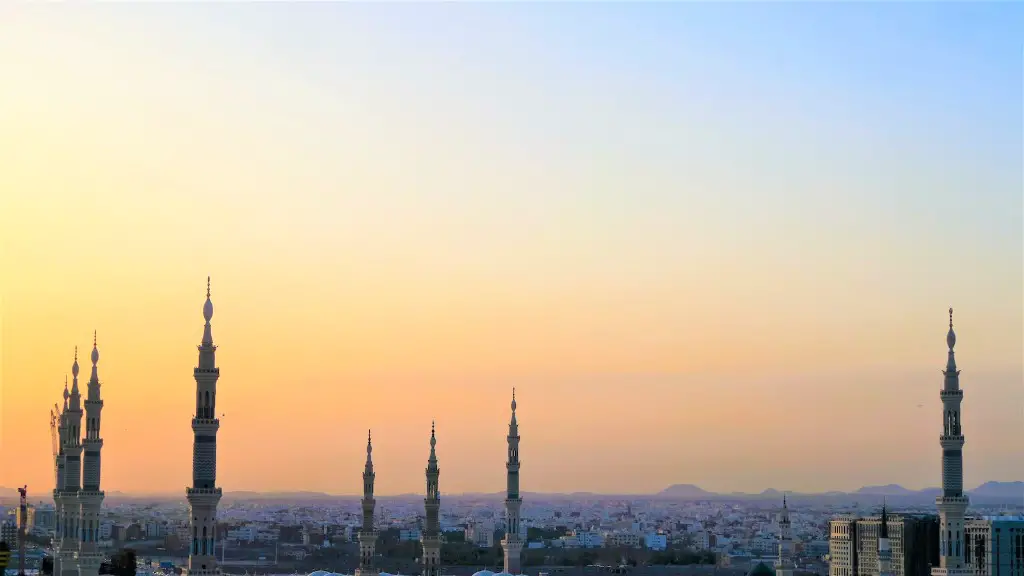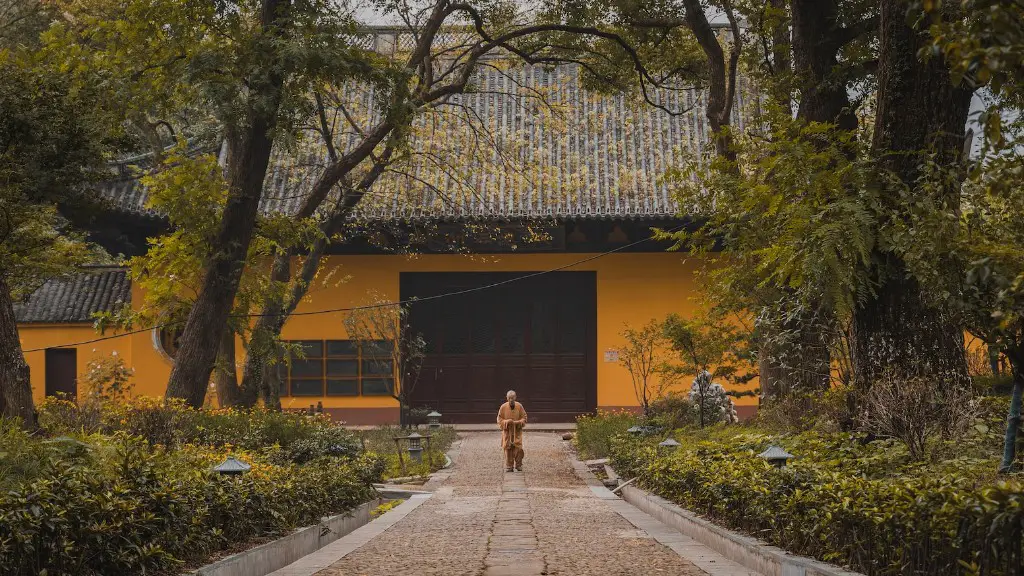The Western Wall, also known as the Wailing Wall, is one of the most important symbols of Judaism and holds great historical, spiritual, and religious significance. Located in Jerusalem, it is the last remaining wall surrounding the ancient Jewish temple, which was destroyed by the Romans in 70 A.D. Since then, it has become a place of pilgrimage, prayer, and reflection for Jews around the world.
This site has had a long and important history in Judaism. It was first built by King Solomon over 3,000 years ago and has since been expanded and rebuilt multiple times, usually after it was destroyed by invading armies. The Western Wall is the closest place to the Sacred Temple where Jews can pray without fear of prosecution, as most are banned from entering the more traditional Temple Mount in Jerusalem.
The Wall has been used as a site of prayer for centuries, and its importance goes far beyond being just an archeological site. For Jews, the Wall is a place of connection with their faith, a feeling of closeness to the holiest of places on Earth. It is a reminder of the love and spiritual connection Jews have with Jerusalem, a connection many trace back to Biblical times.
The Wall is also a symbol of strength and resilience for the Jewish people. Through the ages, it has stood as a witness to the suffering, persecution, and resilience of the Jewish people. In Israel today, it is a reminder that Jews have survived and persevered despite centuries of hardship and struggle.
Services are held regularly at the Wall, and according to Jewish tradition, prayer and supplication to God can only be made while standing in front of it, or reverently touching one of the stones. People of all faiths have made the pilgrimage to the Wall in search of comfort, inspiration, or healing.
While the Wall is an important part of Jewish history, it has also become a symbol of unity and faith for people of all backgrounds. Over the last century, millions of people from around the world have journeyed to the Wall to pay tribute to the resilience of the Jewish people, and to testify to the power of prayer and faith.
The Symbolism Of The Wall
The symbol of the Western Wall is powerful and iconic, representing the strength and continuity of the Jewish faith. Many Jews believe that the Wall is imbued with a special spiritual energy, transmitted from the site of the original Temple. Praying at the Wall is seen as a deeply meaningful and important experience, one that brings comfort, guidance, and inspiration to those in need.
Many Jews also use the Western Wall as a symbol of hope and renewal, a reminder of the strength and perseverance of their people. It is viewed as a site of hope, a source of comfort, and a reminder that no matter the struggles and hardships of the past, Jews will always find their way back to Jerusalem.
The Wall is also seen as a symbol of the unity of the Jewish people, transcending the divisions of politics, geography, and culture. Many say that, even though the Jews of today are scattered throughout the world, when they come to the Wall, for that moment, they are all one.
Spiritual and Cultural Importance
The spiritual and cultural importance of the Wall goes beyond its historical significance. For many Jews, the Western Wall is the most important place in the world for prayer and reflection. It is a place to express yearning for Zion, for a homeland, and for the divine presence of God.
From the ancient days of Jewish ritual and prayer, the Western Wall has been a source of strength and resilience to the Jewish people. It is a place of gathering, veneration, and spiritual comfort.
The Wall is also a reminder of the cultural significance of the Jewish people. It stands as a testament to the long and rich traditions of the Jewish faith, an affirmation that, despite the difficult times, Judaism has continued to thrive and evolve over hundreds of years.
Traditional Practices Associated with The Wall
Traditionally, Jews have practiced specific rituals and customs at the Wall. The most well-known is the practice of placing notes in the cracks of the stones, asking for mercy and guidance from God. It is said that no matter where the notes originated, once placed in the Wall, they become part of the holy site.
In addition, many Jews also practice the custom of Kaddish, a memorial prayer for deceased relatives and friends. The prayer is recited in a circle of people while standing in front of the Wall.
It is also not uncommon to see Jews of various denominations gather to pray together. While Western Wall is the only site where Jews of all denominations can gather without fear of prosecution, it has become a place of unity, inclusivity, and tolerance.
Modern Significance of The Wall
In the 21st century, the Western Wall remains a place of great significance for Judaism and people of all faiths. In a world where religious and cultural divisions can quickly lead to violence and unrest, the Wall stands as a reminder of our shared humanity and the power of prayer and faith.
For Jews, the Western Wall is a source of strength and comfort. It is a symbolic reminder that no matter what hardships have been faced, or what struggles yet lie ahead, Jews will continue to stand tall and persevere.
The Wall remains a special and sacred place to the Jewish people, a symbol of the hope, faith, and courage they have shown through the centuries. It is a reminder that, in this ever-changing world, Judaism will remain a strong and powerful force.
History and Legacy of The Wall
The history of the Western Wall is long and varied, spanning over 3,000 years. Despite facing destruction and hardship multiple times, the wall has stood as a symbol of resilience for the Jewish people.
The Wall has, in many ways, become a representation of Jewish identity, embodying the courage and perseverance of a people who have faced countless hardships throughout history. It has been, and continues to be, a source of solace and spiritual guidance for Jews around the world.
No matter the struggles we face in life, the Western Wall stands as a symbol of hope and courage for us all. It reminds us of the strength, faith, and love that have bound us together throughout the ages.
Impact On Culture And Society
The significance of the Western Wall extends far beyond religious belief. It has become a symbol of hope and resilience for many, an affirmation of the power of faith and prayer in times of struggle.
Modern society has also embraced the Wall, with people of various backgrounds making the pilgrimage to the site to pay homage to its rich history and powerful symbolism. For many, it is a source of comfort and spiritual guidance, a reminder that we are all connected in a much larger, deeply meaningful way.
The Western Wall is an important symbol of the strength and continuity of the Jewish people. It stands as a reminder of love, faith, and resilience throughout history and remains a sacred site for those of many different backgrounds and beliefs.
Preservation Of The Wall
In recent years, there has been a push to preserve the Western Wall and its importance in Jewish history and culture. Advances in stone preservation technology have allowed for more comprehensive restoration and protection of the site, so that it can continue to stand as a symbol of resilience and faith.
The Israeli government has also taken steps to preserve the Wall’s historical and cultural significance. The site is overseen by the Ministry of Religious Affairs, and special measures have been taken to ensure its safekeeping and maintenance.
The Western Wall is an important site and symbol of Jewish history and faith, and its preservation is essential to ensuring its legacy. Preservation efforts should also be focused on ensuring that the site remains accessible to all as a source of strength, comfort, and inspiration for generations to come.
Conclusion of The Wall
The Western Wall is a powerful and sacred symbol of Jewish faith and culture. It has stood the test of time, and its rich tradition of faith, prayer, and resilience has touched the lives of Jews everywhere.
The Wall may be a reminder of the destruction and persecution of the past, but it is also a reminder of the strength, courage, and hope of the Jewish people. It stands as an enduring symbol of faith, unity, and perseverance.



